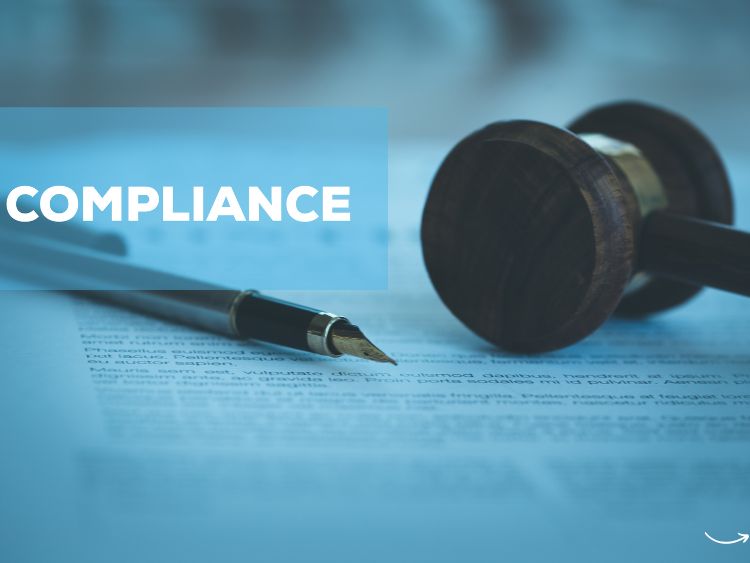In today’s fast-paced corporate world, maintaining compliance with laws and regulations is crucial. Every organization, big or small, needs someone who ensures that all business operations align with legal standards. Enter the corporate compliance officer. But what exactly does a corporate compliance officer do? And why are they so essential? Let’s dive into the world of corporate compliance and explore the pivotal role of these unsung heroes of the business world.
What is a Corporate Compliance Officer?
A corporate compliance officer (CCO) is responsible for overseeing and managing regulatory compliance within an organization. They ensure that the company adheres to all laws, regulations, and internal policies. The role is vital for preventing legal issues and fostering a culture of ethical conduct.
Key Responsibilities of a Corporate Compliance Officer
- Regulatory Monitoring: Keeping up-to-date with changes in laws and regulations relevant to the business.
- Policy Development: Creating and implementing policies and procedures to ensure compliance.
- Training and Education: Educating employees about compliance and ethical standards.
- Risk Assessment: Identifying and assessing areas of potential compliance risk.
- Investigations: Conducting internal investigations into compliance breaches.
- Reporting: Reporting on compliance activities and findings to senior management and regulatory bodies.
The Importance of Compliance in Business
Why is compliance so critical? Well, non-compliance can lead to hefty fines, legal penalties, and a tarnished reputation. But beyond avoiding negative consequences, a robust compliance program can enhance business operations and build trust with stakeholders.
Benefits of a Strong Compliance Program
- Risk Mitigation: Reducing the risk of legal issues and financial penalties.
- Improved Reputation: Demonstrating a commitment to ethical practices.
- Operational Efficiency: Streamlining processes and reducing redundancies.
- Employee Morale: Promoting a positive and ethical work environment.
- Investor Confidence: Building trust with investors and shareholders.
Skills and Qualifications of an Effective Corporate Compliance Officer
A successful CCO needs a unique blend of skills and qualifications. These professionals must be adept at navigating complex regulations while also possessing strong interpersonal skills to effectively communicate with employees at all levels.
Essential Skills
- Analytical Thinking: Ability to analyze and interpret complex regulations.
- Attention to Detail: Ensuring no aspect of compliance is overlooked.
- Communication: Clear and effective communication skills.
- Problem-Solving: Developing solutions to compliance challenges.
- Integrity: Maintaining high ethical standards.
Qualifications
- Education: Typically, a bachelor’s degree in law, business, or a related field. Many CCOs also hold a master’s degree or professional certifications in compliance.
- Experience: Several years of experience in compliance, legal, or related fields.
- Certifications: Certifications such as Certified Compliance & Ethics Professional (CCEP) can be beneficial.
The Day-to-Day Life of a Corporate Compliance Officer
So, what does a typical day look like for a CCO? While no two days are the same, their daily activities often involve a mix of routine tasks and unexpected challenges.
Typical Tasks
- Reviewing Regulations: Staying informed about regulatory changes and updates.
- Conducting Audits: Regularly auditing company processes to ensure compliance.
- Employee Training: Organizing training sessions on compliance topics.
- Internal Investigations: Investigating reports of non-compliance or unethical behavior.
- Reporting: Preparing compliance reports for senior management.
The Challenges Faced by Corporate Compliance Officers
Being a CCO is not without its challenges. These professionals often navigate a complex web of regulations and must balance compliance with business objectives.
Common Challenges
- Regulatory Complexity: Managing the sheer volume and complexity of regulations.
- Employee Resistance: Overcoming resistance to compliance initiatives.
- Resource Constraints: Operating with limited resources and budget.
- Keeping Up with Changes: Staying ahead of constantly evolving laws and regulations.
The Future of Corporate Compliance
As regulations continue to evolve, the role of the corporate compliance officer will only become more critical. Future trends in compliance may include increased use of technology, greater emphasis on data privacy, and more stringent regulatory requirements.
Emerging Trends
- Technology Integration: Utilizing advanced software and AI for compliance monitoring.
- Data Privacy: Adapting to new data protection laws and standards.
- Globalization: Managing compliance in a global business environment.
- Environmental Regulations: Addressing compliance with environmental laws and sustainability practices.
FAQs About Corporate Compliance Officers
What qualifications do you need to become a corporate compliance officer?
Typically, a bachelor’s degree in law, business, or a related field is required. Many CCOs also hold a master’s degree or professional certifications in compliance.
What are the main responsibilities of a corporate compliance officer?
A CCO is responsible for regulatory monitoring, policy development, employee training, risk assessment, internal investigations, and reporting on compliance activities.
Why is compliance important for businesses?
Compliance helps businesses avoid legal penalties, maintain a good reputation, improve operational efficiency, and build trust with stakeholders.
How does a corporate compliance officer handle non-compliance?
A CCO conducts internal investigations, identifies the root cause of non-compliance, and develops corrective actions to prevent future breaches.
Summary
In conclusion, the role of a corporate compliance officer is indispensable in today’s business landscape. These professionals ensure that companies operate within the bounds of the law, fostering a culture of integrity and accountability. By understanding the responsibilities, skills, and challenges of a CCO, organizations can better appreciate the value these individuals bring to their success. So, whether you’re considering a career in compliance or looking to enhance your company’s compliance program, recognizing the importance of this role is the first step toward a more ethical and compliant business environment.

